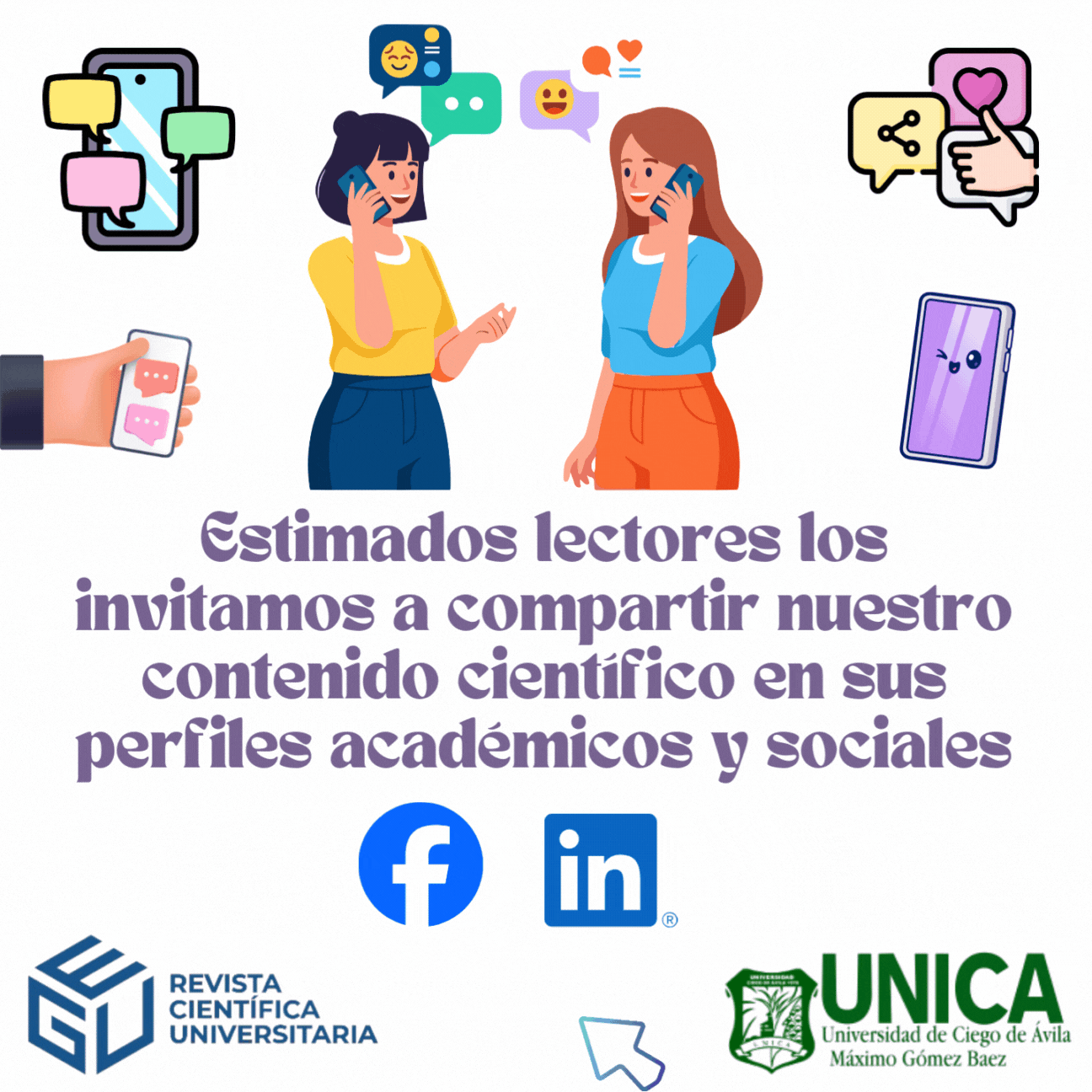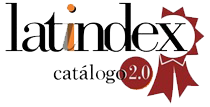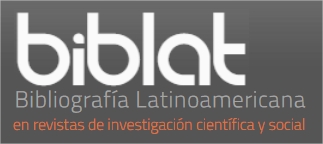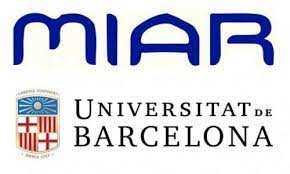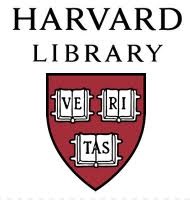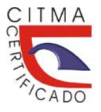Estrategias disruptivas en la modalidad presencial y semipresencial de la Universidad de Managua, Nicaragua
DOI:
https://doi.org/10.5281/zenodo.14957085%20Palabras clave:
educación superior, estrategias disruptivas, modalidad educativa, modalidad presencial, modalidad semipresencialResumen
Introducción: la educación superior se ha transformado con la integración de modalidades presenciales y semipresenciales, exigiendo estrategias innovadoras que respondan a las necesidades de los estudiantes. Objetivo: analizar las estrategias disruptivas implementadas en la Guía Metodológica de la Universidad de Managua, Nicaragua para la modalidad educativa presencial y semipresencial. Método: se realizó un estudio cualitativo, con un enfoque descriptivo, basado en el análisis de la Guía Metodológica, actualizada en septiembre de 2024. Se examinaron las directrices y recomendaciones para la implementación de ambas modalidades, considerando el uso de tecnologías, la interacción docente-estudiante y las estrategias para la evaluación. Resultados: la Guía Metodológica promueve un enfoque socioconstructivista, integrando la inteligencia artificial, la plataforma Google Classroom y las exigencias de la Estrategia Nacional de Educación, del Consejo Nacional de universidades en Nicaragua y lo relacionado con el Sistema Nacional de Evaluación para los aprendizajes, para enriquecer el proceso de enseñanza-aprendizaje en ambas modalidades. Conclusión: se destaca la importancia de la flexibilidad, la participación activa del estudiante y la evaluación continua. La Universidad de Managua implementa estrategias disruptivas que buscan un aprendizaje dinámico y centrado en el estudiante, adaptándose a las demandas de la educación actual.
Descargas
Citas
Addae, D., y Kwapong, O. (2023). PhD Students' Perceptions of Research Seminars in Doctoral Education: A Case Study. Cogent Education, 10(1), e2183701. https://doi.org/10.1080/2331186x.2023.2183701
Alalwan, N. (2022). Actual use of social media for engagement to enhance students' learning. Education and Information Technologies, 27(7), 9767-9789. https://doi.org/10.1007/s10639-022-11014-7
Almogren, A. S. (2023). Art students' interaction and engagement: the mediating roles of collaborative learning and actual use of Social Media affect academic performance. Education and Information Technologies, 28(11), 14423-14451. https://doi.org/10.1007/s10639-023-11735-3
Almulla, M. A. (2023). Constructivism learning theory: A paradigm for students' critical thinking, creativity, and problem solving to affect academic performance in higher education. Cogent Education, 10(1), 25, Article 2172929. https://doi.org/10.1080/2331186x.2023.2172929
Amani, J., y Fussy, D. S. (2023). Balancing child-centred and teacher-centred didactic approaches in early years learning. Education. 3-13, 13-26. https://doi.org/10.1080/03004279.2023.2189905
Ang, J. W., y Ng, Y. (2022). Effect of Research-Based Blended Learning with Scrum Methodology on Learners' Perception and Motivation in a Laboratory Course. Journal of Chemical Education, 99(12), 4102-4108. https://doi.org/10.1021/acs.jchemed.2c00002
Badal, B., y Vandeyar, S. (2023). Teacher voice: A balancing act? South African Journal of Education, 43(4), 10, Article 2348. https://doi.org/10.15700/saje.v43n4a2348
Bates, T. (2019). Teaching in a Digital Age: guidelines for Designing Teaching and Learning. BCcampus Open Educational Resources. https://opentextbc.ca/teachinginadigitalage/
Becerra Sánchez, L. (2020). Tecnologías de la información y las comunicaciones en la era de la cuarta Revolución Industrial: tendencias tecnológicas y desafíos en la educación en Ingeniería. Entre Ciencia e Ingeniería, 14(28), 76-81. http://scielo.sld.cu/scielo.php?script=sci_nlinks&pid=S2227-1899202300040000800000&lng=en
Borkowski, A. S. (2024). A Blended Approach to Inquiry-Based Learning Using the Example of the Interdisciplinary Course of BIM in Spatial Management Studies: A Perspective of Students and Professor. Education Sciences, 14(5), 98-113. https://doi.org/10.3390/educsci14050444
Bouchard, J. (2023). Sociolinguistics as scientific project: insight from critical realism. Journal of Critical Realism, 22(2), 173-194. https://doi.org/10.1080/14767430.2022.2150009
Boyer, W. (2023). Development, Construct Validation, and Normalization of a New Early Childhood Self-Regulation Assessment Scale. Early Childhood Education Journal, 51(4), 627-640. https://doi.org/10.1007/s10643-022-01310-9
Camarillo Hinojoza, H. M. (2024). ¿Innovar y ser disruptivo en el salón de clases? Tres estrategias para la enseñanza-aprendizaje de la argumentación jurídica. Revista Pedagogía Universitaria y Didáctica del Derecho, 11(2),71–88. https://doi.org/10.5354/0719-5885.2024.73455
Cameron, T. A. (2023). We Are STEM: Examining the Significance and Influence of Counterspaces in the Development of Black Girls' STEM Identity. Journal of Black Studies, 54(7), 613-634. https://doi.org/10.1177/00219347231191228
Casimiro Perlaza, L. F., y Torres Daza, H. F. (2023). Tecnologías disruptivas en la enseñanza del inglés: un estudio comparativo de las percepciones de profesores. RECIE. Revista Caribeña de Investigación Educativa, 7(2),175-197. https://doi.org/10.32541/recie.2023.v7i2.pp175-197
Cassany, D. (2021). El arte de dar clase. Editorial Anagrama. https://decires.cepe.unam.mx/index.php/decires/article/view/309
Chibaya, S. (2024). Navigating the ethical quagmire: an in-depth analysis of ethical leadership practices amidst turbulence and multiple deprivation in four Zimbabwean schools. International Journal of Leadership in Education, 4(16), 56-71. https://doi.org/10.1080/13603124.2024.2313007
Christensen, C. M., Horn, M. B., y Johnson, C. W. (2008). Disrupting class: how disruptive innovation will change the way the world learns. McGraw-Hill. https://unika.unav.edu/discovery/fulldisplay?vid=34UNAV_INST:VU1&docid=alma991004798329708016&context=L
Consejo Nacional de Universidades: CNU. (2023). Compendio Normativo del Subsistema de Educación Superior nicaragüense. Universidad de Managua.
Consejo Nacional de Universidades: CNU. (2023). Manual para la planificación curricular en pregrado, grado y posgrado. Universidad de Managua.
Consejo Nacional de Universidades: CNU. (2023). Plan Nacional de Educación 2023-2026. Universidad de Managua.
Corcoran, T. (2024). From dialogics to ecologics: when the how is the what. International Journal of Qualitative Studies in Education, 37(2), 438-450. https://doi.org/10.1080/09518398.2023.2233941
Doroudi, S. (2023). What happened to the interdisciplinary study of learning in humans and machines? Journal of the Learning Sciences, 32(4-5), 663-681. https://doi.org/10.1080/10508406.2023.2260159
Flores González, N. (2022). El perfil del docente y su adaptabilidad a entornos educativos virtuales. RECIE. Revista Caribeña de Investigación Educativa, 6(2), 99-115. https://doi.org/10.32541/recie.2022.v6i2.pp99-115
Grushow, A. (2022). Students Thinking Like Physical Chemists Using an Inquiry-Based NMR Experiment. Journal of Chemical Education, 99(12), 4149-4153. https://doi.org/10.1021/acs.jchemed.2c00589
Hartman, A. (2024). "Let's Just Spend a Ton of Time Together Building This Thing That's so Important:" Children's Theory Development in American Jewish Early Childhood Classrooms. Journal of Jewish Education, 90(3), 197-220. https://doi.org/10.1080/15244113.2024.2357126
Houde, P. M. A. (2022). Refllective Practice Through Dialogic Interactions: Togetherness and Belonging Within a Collective of EFL Teachers in Mexico. Qualitative Report, 27(6), 1485-1510. https://doi.org/10.46743/2160-3715/2022.4861
Janis, I. (2022). Strategies for Establishing Dependability between Two Qualitative Intrinsic Case Studies: A Reflexive Thematic Analysis. Field Methods, 34(3), 240-255, Article 1525822x211069636. https://doi.org/10.1177/1525822x211069636
Jiménez Becerra, I. (2020). Rasgos y tendencias de la didáctica con TIC: retos a partir de la nueva ecología del aprendizaje. Estudios Pedagógicos, 46(2), 215-229. https://doi.org/10.4067/S0718-07052020000200215
Jiménez Gómez, J. L., & Carmona Suarez, E. J. (2023). Construcción del pensamiento computacional mediante la incorporación de la educación STEM en el currículo de secundaria del departamento del Quindío (Colombia). Región Científica, 2(1), 202326. https://doi.org/10.58763/rc20232
Keazer, L. M. (2023). Creating a context for graduate student learning through constructivist inquiry: Introduction to academia as learning through play. Theory into Practice, 62(1), 50-61. https://doi.org/10.1080/00405841.2022.2135908
Kobylarek, A. (2024). Types of knowledge in post-scientistic society. Journal of Education Culture and Society, 15(2), 7-16. https://doi.org/10.15503/jecs2024.2.7.16
Lévanto, S., Benites, S., Tello, C., Chipana, J., & Vergara, M. (2024). Diseño de taller semipresencial de interpretación. Aportes de la Comunicación y la Cultura, 36 (2024), 11-27. http://www.scielo.org.bo/scielo.php?script=sci_serial&pid=2306-8671&lng=es&nrm=iso
Margiono, A. (2021). Digital transformation: setting the pace. Journal Of Business Strategy, 42(5), 315-322. http://scielo.sld.cu/scielo.php?script=sci_nlinks&pid=S2227-1899202300040000800000&lng=en
Martell, C. C. (2022). A longitudinal study of beginning elementary teachers' beliefs and inquiry-based practices in the history classroom. Teacher Development, 26(5), 627-643. https://doi.org/10.1080/13664530.2022.2126883
Meyer, D. (2023). Towards a theory of knowledge acquisition - re-examining the role of language and the origins and evolution of cognition. Educational Philosophy and Theory, 55(1), 57-67. https://doi.org/10.1080/00131857.2022.2061350
Molina Alfonso, R. C. (2020). Constructivismo y aprendizaje significativo. Revista de Historia, 2020(81), 127-132. https://doi.org/10.15359/rh.81.7
Montero, J. (2023). Developing Empathy Through Design Thinking in Elementary Art Education. International Journal of Art & Design Education, 42(1), 155-171. https://doi.org/10.1111/jade.12445
Morales Romero, E., Alarcón Barbán, E., León de la O, M., & García Rodríguez, M. (2023). La transformación digital y sus limitaciones en la dimensión tecnológica: una revisión sistemática. Revista Cubana de Ciencias Informáticas, 17(4), 23-36. http://scielo.sld.cu/scielo.php?script=sci_arttext&pid=S2227-18992023000400008#B9
Morris, T. H. (2024). Four Dimensions of Self-Directed Learning: A Fundamental Meta-Competence in a Changing World. Adult Education Quarterly, 74(3), 236-254. https://doi.org/10.1177/07417136231217453
Muñoz Lira, M. S., & Bruna Gaete, J. A. (2024). Procesos Evaluativos y Pruebas Estandarizadas. ¿Son compatibles si buscamos la calidad en la educación? Región Científica, 3(1), 2024204. https://doi.org/10.58763/rc2024204
Ngoc, N. D. T., y Hercz, M. (2024). Validity and Reliability of Cognitive Constructivism-Oriented Teaching Conception Questionnaire. Asia-Pacific Education Researcher, 33(1), 115-125. https://doi.org/10.1007/s40299-023-00713-5
Nyika, L. (2022). African immigrant students' participation in Canadian health-promoting schools. Health Education Journal, 81(4), 399-412. https://doi.org/10.1177/00178969221087679
Palmer, R., y Choi, I. (2023). Constructing problems in context: a synthesized model of dialectical problem-framing. Etr&D-Educational Technology Research and Development, 71(4), 1525-1545. https://doi.org/10.1007/s11423-023-10246-9
Paredes Mallea, J. O. (2020). Progresión de aprendizajes y tipos de evaluación. Publicaciones, 50(4), 87–98. http://doi:10.30827/publicaciones.v50i4.17783
Posada Prieto, P. (2017). Gamifica tu aula: Experiencia de gamificación TIC para el aula. Ponencia presentada en el V Congreso Internacional de Videojuegos y Educación (CIVE’17). CIVE. https://r.issu.edu.do/l?l=13513YCd
Quintero Rivera, J. J. (2024). Innovación académica para el fortalecimiento de los programas de Contaduría Pública en Colombia. Región Científica, 3(1), 2024211. https://doi.org/10.58763/rc2024211
Sánchez, J., y Reyes Rojas, J. (2022). Chilean Perspectives on Educational Experiences and Innovations in Emergency Contexts. En Dennen, V., Dickson-Deane, C., Ge, X., Ifenthaler, D., Murthy, S., Richardson, J.C. (Eds.) Global Perspectives on Educational Innovations for Emergency Situations. Educational Communications and Technology: Issues and Innovations. Springer, Cham. https://doi.org/10.1007/978-3-030-99634-5_19
Saether, J. (2024). Thinking Educationally about Psychology in Education: Gert Biesta's Critique Reconsidered. Educational Theory, 74(3), 411-433. https://doi.org/10.1111/edth.12645
Sañudo Guerra, L. S. (2022). From dropout to permanence in Secondary school. A study from the general theory of systems. Profesorado-Revista De Curriculum Y Formacion De Profesorado, 26(1), 213-233. https://doi.org/10.30827/profesorado.v26i1.13535
Sekerci, A. R., y Erdem, A. R. (2022). The development and implementation of a two-tier multiple choice test related to the concepts of oxidation-reduction reactions and galvanic cells. Journal of Educational Sciences & Psychology, 12(1), 34-47. https://doi.org/10.51865/jesp.2022.1.05
Sistema Nacional de Evaluación (2024). Evaluación para el aprendizaje. Normativa. Universidad de Managua.
Sistema Nacional de Evaluación para el Aprendizaje: SNEPA. (2024). Sistema de Evaluación para el Aprendizaje. Documento Base. Ministerio de Educación. https://nicaraguaeduca.mined.gob.ni/wp-content/uploads/2024/06/Documento-BASE-SNEPA-VF.pdf
Tien, J. (2024). Free schooling or freedom schooling? Negotiating constructivist learning and anti-racism in the Berkeley Experimental Schools. Pedagogy Culture and Society, 32(2), 281-301. https://doi.org/10.1080/14681366.2022.2030393
Universidad de Managua (2024). Modelo educativo. Universidad de Managua.
Vandeyar, S. (2022). Decolonising Higher Education: The Academic's Turn. Equity & Excellence in Education, 55(3), 189-202. https://doi.org/10.1080/10665684.2022.2064388
Wirestam, R. (2024). Aspects of Throughput Rate and Scientific Output in Doctoral Education: Changes over Time at the Departmental Level. Education Sciences, 14(6), 13, e618. https://doi.org/10.3390/educsci14060618
Wyatt, M. (2024). Constructivism on an award-bearing in-service English language teacher education programme in Oman. Tesol Journal, 15(1), 11. https://doi.org/10.1002/tesj.727
Zablith, F. (2022). Constructing social media links to formal learning: A knowledge Graph Approach. Etr&D-Educational Technology Research and Development, 70(2), 559-584. https://doi.org/10.1007/s11423-022-10091-2
Descargas
Publicado
Cómo citar
Número
Sección
Licencia
Derechos de autor 2025 Estrategia y Gestión Universitaria

Esta obra está bajo una licencia internacional Creative Commons Atribución-NoComercial-CompartirIgual 4.0.



